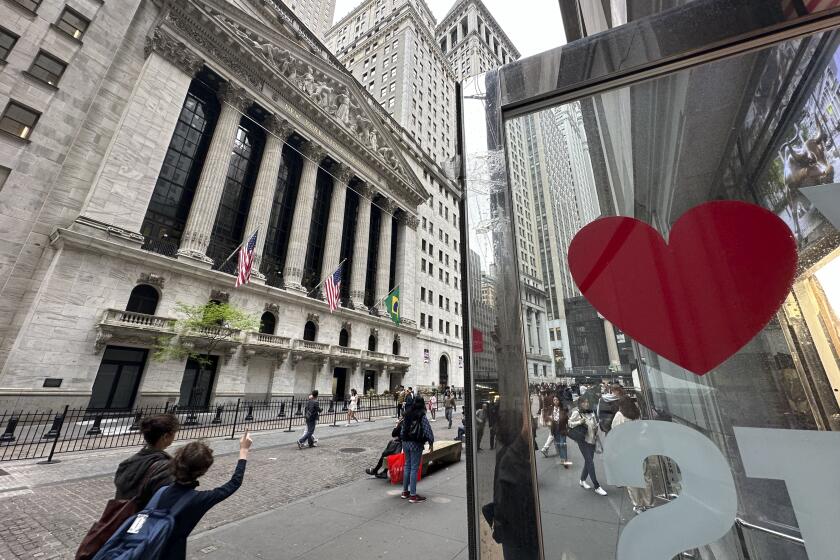Continental Is First Carrier to Post Loss
Continental Airlines said Monday that it lost $166 million in the first quarter as passenger traffic and revenue stayed well below year-ago levels, setting the table for an airline industry expected to report $2 billion in losses this week.
The carriers, having lost a stunning $7 billion last year because of the recession and the Sept. 11 attacks, are struggling to claw their way back.
Factors conspiring against a quick recovery include continued weakness in the economy, fewer leisure and business travelers, higher fuel prices, increased security and insurance costs, the airlines’ inability to raise fares and, in some cases, rising labor expenses.
It’s a “most difficult of economic environments,” said Continental’s chief financial officer, Jeff Misner. Plus, the first quarter is typically weak for carriers because it includes the winter months when travel tapers off.
Only one major airline, perennial moneymaker Southwest Airlines Co., will report a profit for the three months ended March 31 because the discount airline’s operating costs remain among the lowest in the business, predicted analyst Brian Harris of Salomon Smith Barney. United parent UAL Corp. and Delta Air Lines Inc. are expected to post some of the industry’s biggest losses.
The airlines’ results should slowly improve as the year goes on, assuming the economy continues its recovery and there isn’t another major event that jolts the system. Continental, Southwest, Alaska Airlines and AirTran are expected to be back in the black when the current quarter ends, Harris said.
But in a conference call Monday, Continental Chairman Gordon Bethune said he doesn’t “have a lot of hope” the airline will make money in the second quarter because of rising fuel costs and low fares. And “in general, we expect airline management to guide second-quarter estimates downward,” said James Higgins, an analyst at Credit Suisse First Boston.
In the first quarter, Continental had its first profitable month--March--since Sept. 11, but it still ended with a loss of $166 million, or $2.61 per diluted share, which included an $83-million pre-tax charge related to the retirement of its DC-10 fleet.
Excluding the charge, Houston-based Continental lost $114 million, or $1.79 a share, which was considerably better than the $1.97 a share it was forecast to lose by analysts surveyed by Thomson Financial/First Call. A year earlier, the nation’s fifth-largest airline earned $9 million, or 16 cents a share.
Continental’s first-quarter revenue tumbled 19% to $1.99 billion from $2.45 billion, and the airline said revenue per available seat mile--a key gauge of how much income it’s generating per passenger--fell 9% to 9.64 cents from 10.6 cents.
The airline industry, after slashing its operations by 20% or more in response to Sept. 11, secured $5billion in federal bailout cash and then began gradually adding back service.
The industry also kept jetliners relatively full by offering fare sales. But the cheap seats aren’t helping the airlines’ bottom lines much, and carriers still need more passengers paying higher prices.
But the latest effort by Continental and others to raise leisure fares fell apart Monday as Northwest Airlines Corp. and a few other carriers refused to match Continental’s plan to hike discounted round-trip tickets by $20. Some industry executives and analysts say higher prices won’t stick until the U.S. economy becomes stronger, sparking more demand for travel.
The fare hike’s demise prompted a sell-off of airline shares Monday. Continental’s shares tumbled $1.19 to $28.82 on the New York Stock Exchange, and the American Stock Exchange’s index of major airline stocks fell 2.6% to 101.29 points.
*
Times wire services were used in compiling this report.







